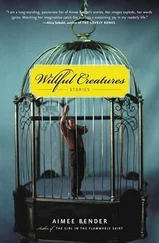When he graduated high school, he became an errand boy on a soap opera, then a writer. He enjoyed making bad things happen to other people: troubled marriages, sudden illnesses, kidnappings. He married a woman who was impressed by his job and his descriptions of various actresses on the set. They had a child, a girl. Then one day the producers gathered all the employees into a windowless conference room. “There’s no more show,” they said.
It was the recession of the early 1970s, a bad time for hiring in any field, and he and his wife had little savings. He looked for work for six months without luck, setting his sights lower and lower, but already there was an odor of desperation on him. One night, his daughter was screaming in pain from an ear infection, but he was afraid to take her to a doctor for what it would cost. The child’s pain so horrified him that he bolted out of the house.
He did not stop running for several blocks. Strangers walked down the street, their wallets bulging with money he wanted. The money was so close to him, he could almost smell its dusky green scent. His jaw hurt. Suddenly, he had an idea: he could rob a liquor store. He had thought about how to do this when he wrote his soap operas. The simplicity of this idea made him stop in astonishment. He could wear a stocking over his face and stuff a bottle in his jacket pocket as a gun.
There was a liquor store a few blocks away, and he stumbled toward it. Lenny stood outside the liquor store for a long time. He sobbed softly. His tongue tasted like a dry, bitter leaf. The other customers entered the store, noble in their morality and their innocence. He had become this: a man who would do anything for money.
Later, he would tell people that this was the moment he became God — for he had saved himself. Anything for Money could be a show in which contestants would do terrible, absurd things to receive vast amounts of money.
The next day, he sat for ten hours in the waiting room of his former employer. When Lenny saw the head of programming, Mr. Tom Lawrence, come out, he hurtled toward him, thrusting out a proposal. “Read this,” he told Mr. Lawrence. Lenny did not know why the man decided to listen to him, though he understood, in an honest part of himself, that it was simply a grand moment of luck. Later, he chose to describe this as a sign of his own inherent glory. Mr. Lawrence took the thin sheet of paper, folded it in half, and stuck it in the pocket of his blazer. Lenny watched him walk off. A month later, Mr. Lawrence bought the idea for the show.
NOW HE WAS SIXTY-FIVE, THE SHOW’S EXECUTIVE PRODUCER, AND his limousine took him from his studios to his home in the hills above Los Angeles. As a young man, he had never quite believed the success of Anything for Money , the way his longing formed itself physically into homes, boats, cars. He used to wake up with his heart pounding as though he were running an immense race. His daughter and wife were mere shadows to him, for he needed to get to the studio with a breathless craving. He was there from eight in the morning until eleven at night.
Thirty years ago, his wife, Lola, left. He blamed his wife’s leaving on her excessive demands; many of his colleagues’ wives had left them, too. The few times he had seen her since she left, she looked entirely unfamiliar to him. It seemed that he had not been married to her but to a lookalike who resembled her. She had come up to him at a party and said softly, “You never knew anything true about me.” When she said this, he felt deeply wounded, felt his honest attempts at goodness had been misunderstood. All his attempts at romance had been clichéd — he bought her diamonds, midnight cruises, silk gowns. “All I wanted,” she said, “was a poem written about my eyes.” He stood before her like a little boy. Did this mean they had not loved each other?
His memories of his daughter were glazed with exhaustion. Charlene stood, naked in the bathtub, water streaming down her tiny body, a pale angel absolutely convinced of her own glory; he could not believe she had come from him. Sometimes Charlene clung to him with such fierceness, such pure trust, he felt himself crumble inside. He was afraid she would see in his eyes the weakness of a lame dog and laugh at him. She was a toddler running, stiff-legged, across the lawn, then she was six and running, legs outstretched, like a small antelope, in gaudy, colorful clothing; then his wife left and he could not see his daughter running.
CHARLENE BELIEVED THAT HE HAD KICKED THEM OUT OF THE house. That was what Lola had told her. He tried to explain to her that this was not the truth, but she said, bluntly, “Mom said she asked you thirty times to stay at home for my fifth birthday. And you did not.” He did not remember any of these requests. He had thought he belonged to a family, but suddenly they accused him of misdeeds and crimes that made him — and them — unknowable.
Charlene called him only to request money, which he always gave her. He once heard her on a talk show denigrating him with a fictional story: “My father was so self-centered he had a special mirror only he could look into. If anyone else did, he’d tell us it would crack.” Much audience laughter. Lenny would not hear from her for months, and then he’d get a long letter, dissecting injuries done during her childhood; she had been arguing with him in her mind the whole time. Then, when he called her to discuss the letter, she would hang up on him.
The calls came more frequently immediately after Lola’s death. His ex-wife had died in a car accident fifteen years ago; she was gone, and his remnant feelings for her were interrupted — he still had not divined whether they had loved each other or not. Charlene seemed to hope that, as her only living parent, he would have the capacity to read her thoughts. He sensed then how remote she felt from other people. When he could not read her thoughts, she reacted with anger so forceful it was as though he had told her he hated her.
Over the last fifteen years, he heard about her mostly through gossip items in the paper: Charlene Weiss sub eatery sinks. Charlene Weiss briefly hospitalized for alcohol abuse. Charlene Weiss has fling with Vance Harley, sitcom star. Charlene Weiss has daughter, Aurora Persephone Diamantina Weiss . A quote from the happy new mom: “I have reached a pinnacle of joy.”
She did tell him about Aurora. She had become pregnant from one of her many suitors and decided to have a child on her own. He received an elaborate birth announcement, a silver card with a photo of the baby girl swathed in white robes like a tiny emperor. The inscription below the picture said: Aurora: A Child Who Will Be Loved .
For thirty years, he lived alone in his mansion on top of the Santa Monica Mountains; he had told his architect that he wanted to feel he could put his hands on the entire city. He could see all the way to the Pacific Ocean, the expanse of ocean like black glass, all the way to the luminous blocks of downtown, to the cars pouring, twin rivers of red and white lights moving east and west, north and south. His loneliness had buried itself deep within him, and he experienced it as the desire to be in the seat of every car. The architect had set his living room at the edge of a hill, so that when Lenny looked out his twenty-foot-high glass windows, he almost believed he could fall into the trembling party of lights. He stood there many nights, full of longing so deep he could not name it; he was aware only of his quiet desire to thrust himself into the dark air.
THE CALL CAME IN HIS LIMOUSINE FOLLOWING A MEETING WITH the producer of the talk show Confess! His maid’s voice floated over the speakers.
“Mister Weiss,” Rosita said. “Come home.”
Читать дальше












